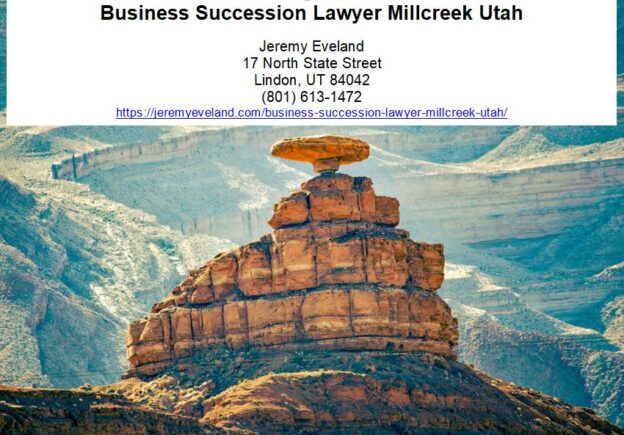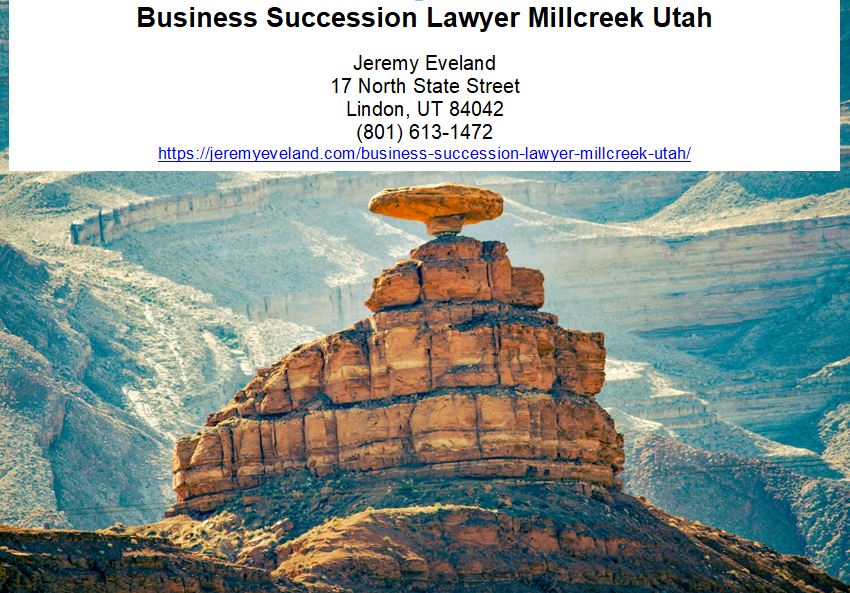-
Attorney at Law
- Introduction
- Understanding the Different Types of Corporate Law in Salt Lake City, Utah
- How to Find the Right Corporate Attorney for Your Business in Salt Lake City
- The Advantages of Working with a Corporate Attorney in Salt Lake City
- What to Look for in a Corporate Attorney in Salt Lake City
- The Benefits of Working with a Corporate Law Firm in Salt Lake City
- How to Choose the Right Corporate Attorney for Your Business in Salt Lake City
- Exploring the Benefits of Working with a Corporate Attorney in Salt Lake City
- Understanding the Role of Corporate Attorneys in Salt Lake City, Utah
- Why You Should Hire Jeremy Eveland As Your Corporate Attorney
“Salt Lake City’s Corporate Attorney: Your Trusted Legal Partner”
Introduction
Welcome to the world of Corporate Attorney Salt Lake City Utah. We are a team of experienced attorneys who specialize in providing legal services to businesses in the Salt Lake City area. Our team of attorneys has a wide range of experience in corporate law, including mergers and acquisitions, corporate governance, securities law, and contract law. We are committed to providing our clients with the highest quality legal services and advice. We strive to provide our clients with the best possible legal representation and to ensure that their interests are protected. We understand the importance of protecting our clients’ rights and interests and are dedicated to providing them with the best legal advice and representation.
Understanding the Different Types of Corporate Law in Salt Lake City, Utah
Salt Lake City, Utah is home to a wide variety of corporate law firms that specialize in different areas of the law. Corporate law is a broad field that encompasses many different types of legal services. Understanding the different types of corporate law can help businesses in Salt Lake City make informed decisions when selecting a law firm.
The most common type of corporate law is transactional law. This type of law focuses on the formation, operation, and dissolution of businesses. It includes the drafting of contracts, the negotiation of deals, and the resolution of disputes. Transactional lawyers help businesses navigate the complexities of the legal system and ensure that their interests are protected.
Another type of corporate law is securities law. This type of law deals with the issuance, trading, and regulation of securities. Securities lawyers help businesses comply with federal and state regulations and protect their interests in the stock market. They also advise businesses on the best ways to raise capital and manage their investments.
Corporate tax law is another important area of corporate law. This type of law deals with the taxation of businesses and their owners. Corporate tax lawyers help businesses understand their tax obligations and develop strategies to minimize their tax liabilities. They also advise businesses on how to structure their finances to maximize their profits.
Finally, corporate litigation is another type of corporate law. This type of law deals with disputes between businesses and other parties. Corporate litigators represent businesses in court and help them resolve their disputes in a timely and cost-effective manner.
These are just a few of the different types of corporate law that are practiced in Salt Lake City, Utah. Understanding the different types of corporate law can help businesses make informed decisions when selecting a law firm. With the right legal advice, businesses can protect their interests and ensure their success.
How to Find the Right Corporate Attorney for Your Business in Salt Lake City
Finding the right corporate attorney for your business in Salt Lake City can be a daunting task. With so many attorneys to choose from, it can be difficult to know which one is the best fit for your business. Here are some tips to help you find the right corporate attorney for your business in Salt Lake City.
1. Research: Before you start your search for a corporate attorney, it is important to do your research. Look into the different types of corporate attorneys in Salt Lake City and read up on their experience and qualifications. This will help you narrow down your search and make sure you are choosing the right attorney for your business.
2. Ask for Referrals: Ask your business contacts and colleagues for referrals to corporate attorneys in Salt Lake City. This is a great way to get an idea of who is reputable and experienced in the field.
3. Interview: Once you have narrowed down your list of potential attorneys, it is important to interview them. Ask questions about their experience, qualifications, and fees. This will help you get a better understanding of who is the best fit for your business.
4. Check References: Before you make your final decision, it is important to check references. Ask the attorneys for references from past clients and contact them to get an idea of their experience with the attorney.
By following these tips, you can find the right corporate attorney for your business in Salt Lake City. With the right attorney, you can ensure that your business is in good hands and that all of your legal needs are taken care of.
The Advantages of Working with a Corporate Attorney in Salt Lake City
Working with a corporate attorney in Salt Lake City can provide numerous advantages for businesses. A corporate attorney can provide legal advice and guidance on a variety of matters, including business formation, contracts, mergers and acquisitions, and other legal matters. Here are some of the key advantages of working with a corporate attorney in Salt Lake City:
1. Expertise: Corporate attorneys in Salt Lake City have extensive experience in the legal field and are well-versed in the laws and regulations that govern businesses in the area. They can provide sound legal advice and guidance on a variety of matters, from business formation to contract negotiations.
2. Cost Savings: Working with a corporate attorney can help businesses save money in the long run. By having an experienced attorney on their side, businesses can avoid costly legal mistakes and disputes.
3. Efficiency: Corporate attorneys in Salt Lake City are familiar with the local court system and can help businesses navigate the legal process quickly and efficiently. This can help businesses save time and money.
4. Risk Management: Corporate attorneys can help businesses identify potential legal risks and develop strategies to mitigate them. This can help businesses avoid costly legal disputes and protect their interests.
By working with a corporate attorney in Salt Lake City, businesses can benefit from the expertise, cost savings, efficiency, and risk management that a corporate attorney can provide. This can help businesses protect their interests and ensure their success.
What to Look for in a Corporate Attorney in Salt Lake City
When searching for a corporate attorney in Salt Lake City, it is important to consider a few key factors. First, it is important to find an attorney who is experienced in the area of corporate law. An experienced attorney will be able to provide sound legal advice and guidance on a variety of corporate matters. It is also important to find an attorney who is familiar with the laws and regulations in the state of Utah. This will ensure that the attorney is able to provide the best possible legal advice and representation.
In addition, it is important to find an attorney who is knowledgeable about the local business climate. This will help the attorney to better understand the needs of their clients and provide the most effective legal advice. It is also important to find an attorney who is willing to take the time to understand the client’s business and provide tailored advice.
Finally, it is important to find an attorney who is accessible and responsive. An attorney who is available to answer questions and provide timely advice is essential for any successful business. It is also important to find an attorney who is willing to work with the client to ensure that their legal needs are met.
By considering these factors, businesses in Salt Lake City can find an experienced and knowledgeable corporate attorney who can provide the best possible legal advice and representation.
The Benefits of Working with a Corporate Law Firm in Salt Lake City
Salt Lake City is home to a number of corporate law firms that specialize in providing legal services to businesses. Working with a corporate law firm in Salt Lake City can provide a number of benefits to businesses, including access to experienced attorneys, comprehensive legal services, and cost savings.
Access to Experienced Attorneys
When businesses work with a corporate law firm in Salt Lake City, they gain access to experienced attorneys who are knowledgeable in the laws and regulations that govern businesses in the area. These attorneys can provide valuable advice and guidance on a variety of legal matters, from contract negotiations to dispute resolution. They can also help businesses navigate the complexities of the legal system and ensure that their rights and interests are protected.
Comprehensive Legal Services
A corporate law firm in Salt Lake City can provide comprehensive legal services to businesses. These services can include drafting and reviewing contracts, providing legal advice on business transactions, and representing businesses in court. Corporate law firms can also provide assistance with mergers and acquisitions, intellectual property protection, and other legal matters.
Cost Savings
Working with a corporate law firm in Salt Lake City can also help businesses save money. By having access to experienced attorneys, businesses can avoid costly mistakes and ensure that their legal matters are handled properly. Additionally, corporate law firms often offer discounted rates for businesses that require ongoing legal services.
Overall, working with a corporate law firm in Salt Lake City can provide businesses with a number of benefits. From access to experienced attorneys to cost savings, businesses can benefit from the comprehensive legal services that corporate law firms provide.
How to Choose the Right Corporate Attorney for Your Business in Salt Lake City
When it comes to choosing the right corporate attorney for your business in Salt Lake City, it is important to take the time to find the right fit. A corporate attorney can provide invaluable legal advice and guidance to help your business succeed. Here are some tips to help you find the right corporate attorney for your business in Salt Lake City:
1. Research: Take the time to research corporate attorneys in the Salt Lake City area. Look for attorneys who specialize in corporate law and have experience in the specific areas of law that your business needs.
2. Ask for Referrals: Ask other business owners in the area for referrals to corporate attorneys they have used in the past. This can help you narrow down your search and find an attorney who is experienced in the areas of law that your business needs.
3. Interview: Once you have narrowed down your list of potential corporate attorneys, it is important to interview each one. Ask questions about their experience, their fees, and their approach to legal matters. This will help you get a better understanding of how they can help your business.
4. Check References: Before making a final decision, it is important to check references. Ask the attorneys for references from past clients and contact them to get an idea of how the attorney handled their legal matters.
By taking the time to research, ask for referrals, interview, and check references, you can find the right corporate attorney for your business in Salt Lake City. With the right attorney on your side, you can ensure that your business is protected and that you have the legal advice and guidance you need to succeed.
Exploring the Benefits of Working with a Corporate Attorney in Salt Lake City
Working with a corporate attorney in Salt Lake City can be a great way to ensure that your business is operating in compliance with the law. A corporate attorney can provide invaluable advice and guidance on a variety of legal matters, from contract negotiations to corporate governance. Here are some of the key benefits of working with a corporate attorney in Salt Lake City.
1. Expertise: Corporate attorneys in Salt Lake City have a deep understanding of the laws and regulations that govern businesses in the area. They can provide advice on how to structure your business, draft contracts, and handle disputes. They can also help you navigate the complexities of corporate governance and ensure that your business is compliant with all applicable laws.
2. Cost Savings: Working with a corporate attorney can save you money in the long run. By having an experienced attorney on your side, you can avoid costly mistakes and ensure that your business is operating in compliance with the law.
3. Risk Management: Corporate attorneys can help you identify potential risks and develop strategies to mitigate them. They can also provide advice on how to protect your business from potential legal liabilities.
4. Negotiation: Corporate attorneys are experienced negotiators and can help you get the best possible deal when negotiating contracts or other agreements.
5. Representation: Corporate attorneys can represent your business in court if necessary. They can also provide advice on how to handle disputes and other legal matters.
By working with a corporate attorney in Salt Lake City, you can ensure that your business is operating in compliance with the law and that you are getting the best possible deal when negotiating contracts and other agreements. A corporate attorney can provide invaluable advice and guidance on a variety of legal matters, from contract negotiations to corporate governance.
Understanding the Role of Corporate Attorneys in Salt Lake City, Utah
Corporate attorneys in Salt Lake City, Utah play a vital role in the success of businesses in the area. These attorneys provide legal advice and services to businesses of all sizes, from small startups to large corporations. They are responsible for ensuring that businesses comply with all applicable laws and regulations, as well as providing guidance on a variety of legal matters.
The primary role of corporate attorneys in Salt Lake City is to provide legal advice and services to businesses. This includes drafting contracts, reviewing documents, and providing guidance on a variety of legal matters. Corporate attorneys also provide advice on corporate governance, mergers and acquisitions, and other business transactions. Additionally, they may represent businesses in court proceedings, such as contract disputes or other litigation.
In addition to providing legal advice and services, corporate attorneys in Salt Lake City also help businesses protect their intellectual property. This includes filing for patents, trademarks, and copyrights, as well as providing advice on how to protect trade secrets. Corporate attorneys also help businesses protect their assets by drafting and reviewing contracts, such as leases and employment agreements.
Finally, corporate attorneys in Salt Lake City also provide guidance on compliance with state and federal laws. This includes providing advice on tax laws, labor laws, and environmental regulations. Corporate attorneys also help businesses understand their obligations under the law and ensure that they are in compliance.
Overall, corporate attorneys in Salt Lake City play a vital role in the success of businesses in the area. They provide legal advice and services, help protect intellectual property, and ensure that businesses are in compliance with applicable laws and regulations. By providing these services, corporate attorneys help businesses succeed and grow.
Why You Should Hire Jeremy Eveland As Your Corporate Attorney
Jeremy Eveland is an experienced corporate attorney who has been providing legal services to businesses for years. He has a proven track record of success in helping clients navigate the complexities of corporate law.
Jeremy has a deep understanding of the legal issues that businesses face, and he is well-versed in the laws and regulations that govern corporate transactions. He is also highly knowledgeable in the areas of contract law, corporate governance, and business law. He is good with negotiations and drafting contracts, and he is adept at resolving disputes between parties.
Jeremy is a respected lawyer who has professionalism and integrity. He is committed to providing his clients with the highest quality legal services, and he is dedicated to helping them achieve their goals. He is also highly experienced in the areas of business finance, mergers and acquisitions, and intellectual property law.
Jeremy is an good communicator who is able to clearly explain complex legal concepts to his clients. He is also organized and efficient, and he is able to manage multiple projects at once. He is a negotiator who is able to effectively represent his clients’ interests in negotiations.
Jeremy is an excellent choice for any business that needs a corporate attorney. He has the experience and knowledge to provide the highest quality legal services, and he is committed to helping his clients achieve their goals. He only handles a few matters at a time and may not be taking new clients if you decide to call him.
Areas We Serve
We serve individuals and businesses in the following locations:
Salt Lake City Utah
West Valley City Utah
Provo Utah
West Jordan Utah
Orem Utah
Sandy Utah
Ogden Utah
St. George Utah
Layton Utah
South Jordan Utah
Lehi Utah
Millcreek Utah
Taylorsville Utah
Logan Utah
Murray Utah
Draper Utah
Bountiful Utah
Riverton Utah
Herriman Utah
Spanish Fork Utah
Roy Utah
Pleasant Grove Utah
Kearns Utah
Tooele Utah
Cottonwood Heights Utah
Midvale Utah
Springville Utah
Eagle Mountain Utah
Cedar City Utah
Kaysville Utah
Clearfield Utah
Holladay Utah
American Fork Utah
Syracuse Utah
Saratoga Springs Utah
Magna Utah
Washington Utah
South Salt Lake Utah
Farmington Utah
Clinton Utah
North Salt Lake Utah
Payson Utah
North Ogden Utah
Brigham City Utah
Highland Utah
Centerville Utah
Hurricane Utah
South Ogden Utah
Heber Utah
West Haven Utah
Bluffdale Utah
Santaquin Utah
Smithfield Utah
Woods Cross Utah
Grantsville Utah
Lindon Utah
North Logan Utah
West Point Utah
Vernal Utah
Alpine Utah
Cedar Hills Utah
Pleasant View Utah
Mapleton Utah
Stansbury Par Utah
Washington Terrace Utah
Riverdale Utah
Hooper Utah
Tremonton Utah
Ivins Utah
Park City Utah
Price Utah
Hyrum Utah
Summit Park Utah
Salem Utah
Richfield Utah
Santa Clara Utah
Providence Utah
South Weber Utah
Vineyard Utah
Ephraim Utah
Roosevelt Utah
Farr West Utah
Plain City Utah
Nibley Utah
Enoch Utah
Harrisville Utah
Snyderville Utah
Fruit Heights Utah
Nephi Utah
White City Utah
West Bountiful Utah
Sunset Utah
Moab Utah
Midway Utah
Perry Utah
Kanab Utah
Hyde Park Utah
Silver Summit Utah
La Verkin Utah
Morgan Utah
Corporate Attorney Salt Lake City Utah Consultation
When you need help from a Corporate Attorney in Salt Lake City Utah call Jeremy D. Eveland, MBA, JD (801) 613-1472 for a consultation.
Jeremy Eveland
17 North State Street
Lindon UT 84042
(801) 613-1472
Related Posts
Business Strategy and Consulting
Business Succession Lawyer Roy Utah
Business Lawyer St George Utah
Estate Planning Lawyer Ogden Utah
Business Succession Lawyer Pleasant Grove Utah
Market Analysis For Business Antitrust Merger
Are Legal Expenses for Estate Planning Deductible?
Common Legal Issues That Should Involve A Business Lawyer
Corporate Attorney West Valley City Utah
What Does A Corporate Counsel Do?
Can Corporate Counsel Represent A Corporation In Court?
Corporate Attorney Salt Lake City Utah
[geocentric_weather id=”79414f66-9f4c-4a1a-9eaa-8bbae65c0683″]
[geocentric_about id=”79414f66-9f4c-4a1a-9eaa-8bbae65c0683″]
[geocentric_neighborhoods id=”79414f66-9f4c-4a1a-9eaa-8bbae65c0683″]
[geocentric_thingstodo id=”79414f66-9f4c-4a1a-9eaa-8bbae65c0683″]
[geocentric_busstops id=”79414f66-9f4c-4a1a-9eaa-8bbae65c0683″]
[geocentric_mapembed id=”79414f66-9f4c-4a1a-9eaa-8bbae65c0683″]
[geocentric_drivingdirections id=”79414f66-9f4c-4a1a-9eaa-8bbae65c0683″]
[geocentric_reviews id=”79414f66-9f4c-4a1a-9eaa-8bbae65c0683″]



















